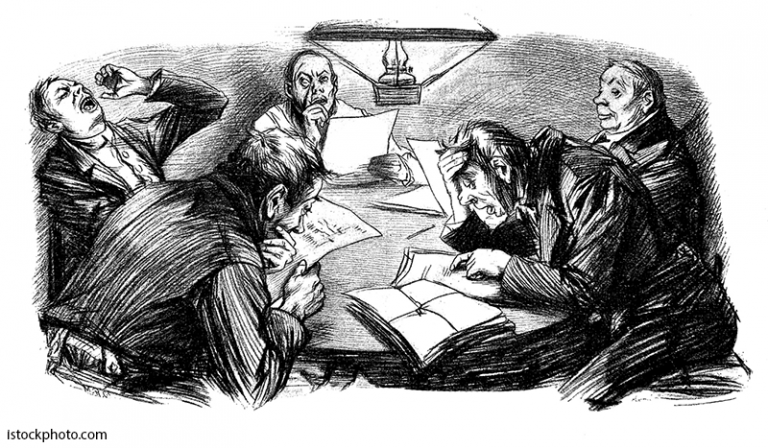Guiding any organization by entitlement’s nose is risky: It is ruinous in universities. And, while entitlement rears its quality-killing head too frequently in learning environments, it is not yet pervasive. But, it’s on the way.
“You cannot help people permanently by doing for them, what they could and should do for themselves.”
― Abraham Lincoln
___________________________________________________________
Entitlement is a fact of life in free societies and, in many current forms, a noxious and unnecessary pronouncement of human frailty. The International Covenant on Economic, Social and Cultural Rights (ICESCR), a treaty sponsored by the United Nations, had been signed by 160 nations and committed to ratification by seven more, including the U.S., by the end of 2012. Among other things this seemingly well-intended document works to guarantee every world citizen a job, an education, and a healthy existence.
It is, however, a disgrace to the cause of freedom. The treaty does not strengthen the benefit of freedom, but steals it. Likewise, too many universities participate in the pilfering of dreams, diligent work, and the attainment of aspirations.
It is impossible to open a newspaper without reading commentaries on the current challenges of higher education, including markedly increasing student debt — the $1 trillion mark was eclipsed this year — the declining stature of student study habits, emphasis on extracurricular activities and luxurious accommodations, the decreasing preparedness of students, and a multitude of other ills that seem to infect higher education.
Elayne Clift lamented the impact of entitlement in The Chronicle of Higher Education a couple of years ago. She wrote: “The sad thing is, I’m not alone. Every college teacher I know is bemoaning the same kind of thing. Whether it’s rude behavior, lack of intellectual rigor, or both, we are all struggling with the same frightening decline in student performance and academic standards at institutions of higher learning. A sense of entitlement now pervades the academy, excellence be damned.”
But, there is another side to the story.
I have the daily privilege of walking through a building populated with students whose behavior flies in the face of these stifling generalizations. Maybe it’s because the programs have selective admissions and good students are drawn into the design disciplines. Possibly it’s the nature of the disciplines themselves: Our students produce things — intellectual output—that is the result of their ideas. The work of the mind and the work of the hand are conjoined and, in that attachment of idea and product, energy is generated and released. Students sense the fusion of work, idea, and inherent value.
And even in this apparently rarified setting, 10% of the students I encounter have no business being here, but that is a small number. This minority is lazy, unmotivated, driven by entitlement, or unable to glean the satisfaction that comes from a job well done through the application of effort and intelligence.
Critical to the future of higher education is a clear and powerful recognition that if the post secondary educational system exists to meet the flimsy and cheap gratifications of those who lack the ability, determination, spit, or chutzpah, the whole enterprise is denigrated. That is unfortunate for all, not just those predisposed to expect rewards for little or no effort.
We need to cull the herd.
This perspective is not mean-spirited, anti-egalitarian, insensitive, or counter to the goals of an educated citizenry and the importance of an enlightened populace in a free society. But, if we trivialize the pursuits of the mind and make them common to anybody willing to pay the tab without the willingness to do the work, we undercut the value to devoted students, unintentionally dashing real aspiration and the social benefits accrued from it.
There are forces of false franchise at work that undermine authentic risk and reward. The harm done to the aspirations of capable students by incapable students and well-intended but misguided public officials, university leaders and faculty, is an irreparable diminution of the purpose of our universities that percolates into the public square. The social consequences are real and will be felt for generations.
We rob students of the possibility to fail by attempting to ensure their success. We steal from them the bona fide joy of attaining an aspiration that seems beyond their reach. Ms. Clift is correct in this aspect of her assessment, “Too often the balance sheet, educator apathy, and a fear of resolving difficult situations lead to irresponsible practices such as encouraging grade inflation and ignoring violations of academic integrity.”
These are the real costs of universities open to all as a prerogative of birth, status, citizenship, and a placebo for the power of a student learning to generate, sustain, and promulgate ideas and insights. The greatest failing is a vision of students as customers because they have paid the bill.
University leadership and faculty have an intrinsic responsibility to maintain the integrity of student aspirations, by ensuring that able, willing, and capable students are challenged, and that those who are unable or unwilling or incapable are disallowed. That’s the job.
By giving what is not earned, our universities are invalidated as seats of learning and students are stripped of aspirations.







I’ve refrained up to now from commenting hoping that others may see the discrepancy between the opening paragraphs and what follows, the latter ideas that I’m in full agreement with. However, I see the pernicious Republican ideological definition of “entitlements” operating here in a manner that questions the second sincere part of the article. Far from being a “disgrace to the cause of freedom”, ICESCR is something that would facilitate the ideas espoused in the bulk of the article. The call for “a job, an education, and a healthy existence” would actually benefit the changes Dr. Wendler wishes, that is, unless, he is espousing (19th social darwinist ideals and a return to the era of the robber barons that elements in the Republican Party and Tea Party caucuses desires inspited by the Koch Brothers, distant releatives of Ilsa Koch “the beast of Belsen.”
I would also suggest that Dr. Wendler turn to his Bible, especially those Old Testament and New Testament passages that espouse caring for the sick and hungry, protecting the widow and orphan, and not allowing them to fall into starvation. Other definitions of the utopian society could be cited such as Kang Youwei’s DATONG and other past and future definitions that demand a decent mode of life for all people, not just the rich and privileged.
Without efforts to achieve a decent standard of existence or the bare rudiments of survival that the contemporary derogatory definitions of “entitlements” by Obama and the Republican Party now deny, the necessary changed conditions needed for the ideal university will not happen. Instead they will be playgrounds for the idle rich as in one part of BRIDESHEAD REVISITED and a betrayal of the democratic ideals behind American higher education that are now under threat. “Dumbing down” does not necessarily relate to this past historical trend and a decent standard of living will allow everyone the level ground needed on both cultural and economic levels to have an equal starting line and allow those who want to, regardless of income and family connections, to decide whether they want to follow the path of higher education or not. You can’t have one without the other, that is, unless higher education is regarded as being limited to the rich and privileged as it was in the (19th and the “back to the future” philosophy or Mitt Romney and others.